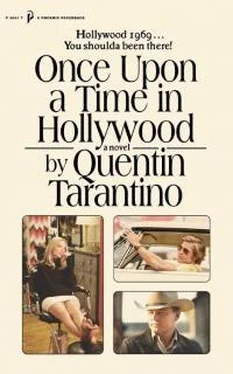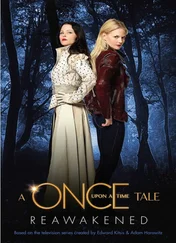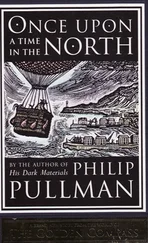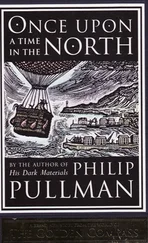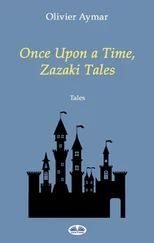So when Rick received the billboard section featuring him, he initially thought, What the fuck am I gonna do with this ? His answer was to just leave it outside in the driveway.
That was five years ago.
As Cliff switches off the ignition, Rick goes into one of his passive-aggressive tantrums. He’s upset about something, so he makes himself upset about something else. In this case, the billboard in the driveway.
“Can we finally ”—gesturing broadly toward the oil painting—“get this fucking thing outta the driveway?”
“Where do you want me to put it?”
“Throw it away for all I care!”
Cliff makes the disappointed face of a child. “Awww, Felix found that for you.” He prods, “Don’t be jaded, that’s a cool gift.”
“Just because I don’t want to spend every morning and evening staring face-to-face with an oil painting of my mouth, like I’ve done for the last five years, shouldn’t insinuate I’m jaded.” Rick clarifies, “I’m just tired of fuckin’ lookin’ at it, alright? Can’t ya just put it in the garage?”
Cliff chuckles, “Your garage? It’s a mess.”
Rick instructs, “Well, can you clean it out enough to stick the billboard in?”
Cliff removes his sunglasses and says, “Yes, I can.” Then clarifies, “But that’s not a this-afternoon thing; that’s a weekend kind of thing.”
An exasperated Rick vents his frustration in a less bossy way: “It’s just I don’t need a big picture of myself in front of my house. It looks like I’m advertising the Rick Dalton Museum.”
Then, all of a sudden, the whoosh of a motor and the sound of Beatles harmony invades their driver’s side ear. Both men turn to their left and spy, for the very first time, Rick’s new next-door neighbors , Roman and Sharon Polanski, in their vintage 1920s English Roadster . The Beatles song A Day in the Life emanates from the car radio, tuned to 93 KHJ. The car containing the handsome Hollywood couple sits at the bottom of a hill that constitutes their driveway, waiting for their electronic gate to open. Roman is behind the wheel, his wife in the passenger seat, clunky plastic clicker in Sharon’s hand. The two lovebirds are carrying on a lively conversation neither Rick nor Cliff can hear above the rumbling of the Roadster’s engine and the Beatles’ pretentious sound design. Cliff sees only the stunning blonde in the passenger seat, while Rick looks right through her to the diminutive Polish auteur in the driver’s seat.
Apart from Mike Nichols, no other young director at the time was more successful or more famous than Roman Polanski. But the Polish megaphone-wielder had a level of popularity that eluded his stage and screen colleague Nichols. In 1969, Roman Polanski was a rock star !
He had made a name for himself when he directed his first feature, the Polish language Knife in the Water . The film was a hit on the foreign-film circuit and was even nominated for best foreign film at the Academy Awards. After the success of his first film, Polanski moved to London and started making movies in the English language.
Two of the films, Cul-de - sac and The Fearless Vampire Killers (where he met his wife, Sharon), were admired but didn’t make much of a mark financially. But his psychological thriller Repulsion was a sleeper hit that broke out of the art-house ghetto into mainstream success. After a slew of bad Psycho copies from Hammer Studios and the thrill-less thrillers coming out of France, like the pulse-devoid romans de gare of Claude Chabrol or the amateur-night-in-Paris fumblings of the so-called Truffaut–Hitchcock films, along came Polanski’s London-set Psycho- ish thriller Repulsion . When it came to how to do a modern-day Hitchcockian thriller for a with-it audience, that pulsed to a swinging London beat, with Repulsion Roman cracked the code .
Polanski’s character study of twisted paranoia, starring the beautiful but damned Catherine Deneuve, worked. But where a Hitchcock thriller worked to entertain, Polanski’s movie worked to disturb. Hitchcock could and did disturb too— Suspicion , Strangers on a Train , Shadow of a Doubt , and of course Psycho . But only up to a point. With Polanski, audience disturbance was the point.
Polanski’s Hitchcockian thriller by way of Buñuel struck a chord with audiences.
After Polanski showed he had a penchant for getting under an audience’s skin with Repulsion , head honcho of Paramount Studios Robert Evans invited him to come out to Hollywood and make a movie. He lured Roman, an expert skier, into his office by sending him a script for an upcoming movie on their slate about competitive skiing called Downhill Racer.
And then, in a decision that would later make Paramount’s stock price go up three points, Evans handed him the novel of Ira Levin’s Rosemary’s Baby and said, “Read this.” The rest, as Marvin Schwarz would say, is horror-movie history.
Levin’s slim novel, essentially a novella, tells the story of Rosemary Woodhouse (Mia Farrow), a young newlywed who’s married to an ambitious actor named Guy Woodhouse (John Cassavetes). They move into a classic New York loft and start a relationship with an eccentric elderly couple that live in the building, Minnie and Roman Castevet (Ruth Gordon and Sidney Blackmer). Little does poor Rosemary know, the couple are a pair of Satanists looking for a vessel to birth the long-prophesied Antichrist. Evans’s prescient vision that Polanski was the one to bring this product to the screen has to go down as one of the all-time inspired decisions ever made by a studio executive.
After reading the material, Polanski only had one qualm. But it was a big one. Polanski was an atheist. And if you don’t believe in God, you must equally reject the idea of the devil. Now, many directors could and would say, So what? It’s just a movie. You don’t have to believe in giant monkeys to direct King Kong. And they wouldn’t be wrong. But Roman didn’t feel comfortable making a movie that reinforced the belief in religion, a philosophy he thoroughly rejected. Yet the filmmaker could see what a good movie this could be. So how did he reconcile his personal beliefs with the material? He staged the material as written but added an almost imperceptible perspective change.
Nothing, until the film’s final moment, confirms Rosemary’s sinister suspicions. Polanski never gives the audience a glimpse of anything that can be labeled supernatural. All of Rosemary’s “evidence” of the sinister conspiracy she feels is taking place against her is anecdotal and circumstantial. Since we care for Rosemary and we’re watching a horror movie, most audiences take her investigative gaze at face value.
But instead of the elderly couple down the hall being the leaders of a coven of sinister Satanists, and instead of her husband selling his soul and the soul of his unborn child to the devil, maybe it would be equally likely, and frankly more probable, that Rosemary is suffering from acute paranoia brought on by postpartum depression?
Now, true, at the climax it is revealed that, yes indeed, the Castevets and their friends have perpetrated a conspiracy against Rosemary. But the actual existence of Satan himself is still ambiguous. Who’s to say the Castevets and company aren’t just a bunch of fucking lunatics? If at the end they all yelled, Hail, Pan! as opposed to Hail, Satan! would you question the validity of their belief?
Among any of the other filmmakers who Evans could have hired to direct that book, it’s almost unimaginable that they wouldn’t have made it a monster movie. Polanski managed the Herculean feat of not making a monster movie yet still scaring the pants off of audiences. Then Evans and his team did their part by devising one of the great movie-advertising campaigns of the era and cutting a horrific trailer that in some ways betters the movie. The end result was a massive hit that made Roman Polanski not only one of the hottest directors in the business but a pop-cultural icon (he’s mentioned in the lyrics of the rock musical Hair ) and the first genuine rock-star movie director.
Читать дальше
